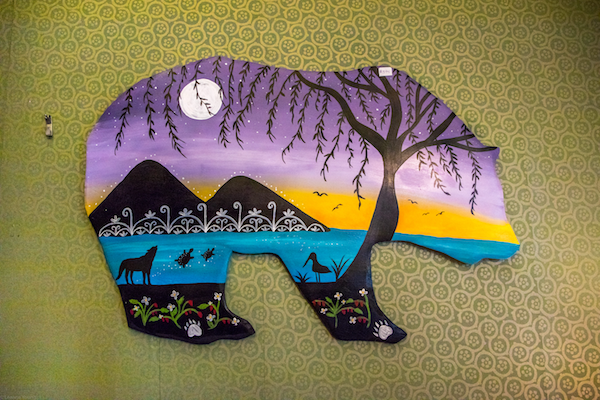McGill’s ninth annual Indigenous Awareness Weeks (IAW) launched on Sept. 16. The theme this year is “matriarchy and Indigenous languages,” inspired partly by the United Nations proclamation of 2019 as the International Year of Indigenous Languages. Indigenous Education Advisor Janelle Kaperski spearheaded the organization of 12 of the 16 IAW events, taking place Sept. 16—27. She explained the lens through which Indigenous languages will be exhibited this year.
“I believe that Matriarchy and Indigenous languages are inextricably linked,” Kasperski said. “There’s no way you can talk about one without the other as many of us have learned our languages from strong women in our lives.”
IAW 2019 will feature a variety of events including workshops, panel discussions, keynote speakers from across Canada, and the 19th Annual McGill Pow Wow hosted by McGill’s First People’s House. Although IAW provides an opportunity for the McGill community to learn about Indigenous cultures, Kasperski emphasizes that the goal has always been to highlight Indigenous excellence.
“[The purpose of IAW has] always [been] to celebrate Indigenous successes and provide space and a platform for Indigenous voices, knowledges, sharing, and really to highlight how important [these are] on campus,” Kasperski said. “I believe that’s what [IAW] is and what it always has been and that’s what it will continue to be.”
The Student’s Society of McGill University’s (SSMU) Indigenous Affairs Commissioner Tomas Jirousek pointed out the lack of physical space available for Indigenous staff and students on campus and hopes that IAW can help increase campus expressions of indigeneity.
“There are very few expressions of indigeneity on campus,” Jirousek said. “IAW helps break that a little bit, whether it’s physically hanging banners, whether it’s actually having the physical spaces occupied by Indigenous knowledge holders, that helps disrupt this type of neoliberal [and] colonial learning environment.”
Jirousek highlights the importance of solidarity by referring to a collaboration with McGill’s Black Students’ Network (BSN) on a panel discussion examining the impact of colonial power on both black and Indigenous students.
“[The event is] speaking specifically to solidarity within colonial context as people of colour,” Jirousek said. “Black students and Indigenous students both face a variety of unique challenges whether it be economic, pedagogically-based, any other conditions which may create barriers to black and Indigenous students accessing post-secondary institutions.”
Founded in 2011 by Associate Director of the First People’s House Allan Vicaire, the McGill IAW started as only four days of celebrations, but has since expanded to two weeks after Kasperski began planning the event in 2018. Although Kasperski hopes for IAW to be a full month, there are challenges that come with extending the celebrations.
“When I first started the position, [IAW] was one week and immediately my thought was that, why don’t I have a month?” Kasperski said. “I know we have Black History Month [and] LGBTQ2I+ Month, but [when I initially] started, it was not feasible to be able to expand [IAW] to a month. To know that it’s in September is really difficult because there has been so much orientation. There were very specific reasons that the people before me chose this month. It is the fall equinox and an important time of year for many Indigenous nations [and] peoples”
Vicaire believes that it is not just about extending the length of IAW, and Indigenous issues should not be limited to set dates, but instead discussed throughout the year.
“We should be infusing Indigenous people’s issues in all areas during the year,” Vicaire said. “We can’t just stop at one week or two weeks. We always have to be mindful about Indigenous peoples because we are the original peoples of this land.”








